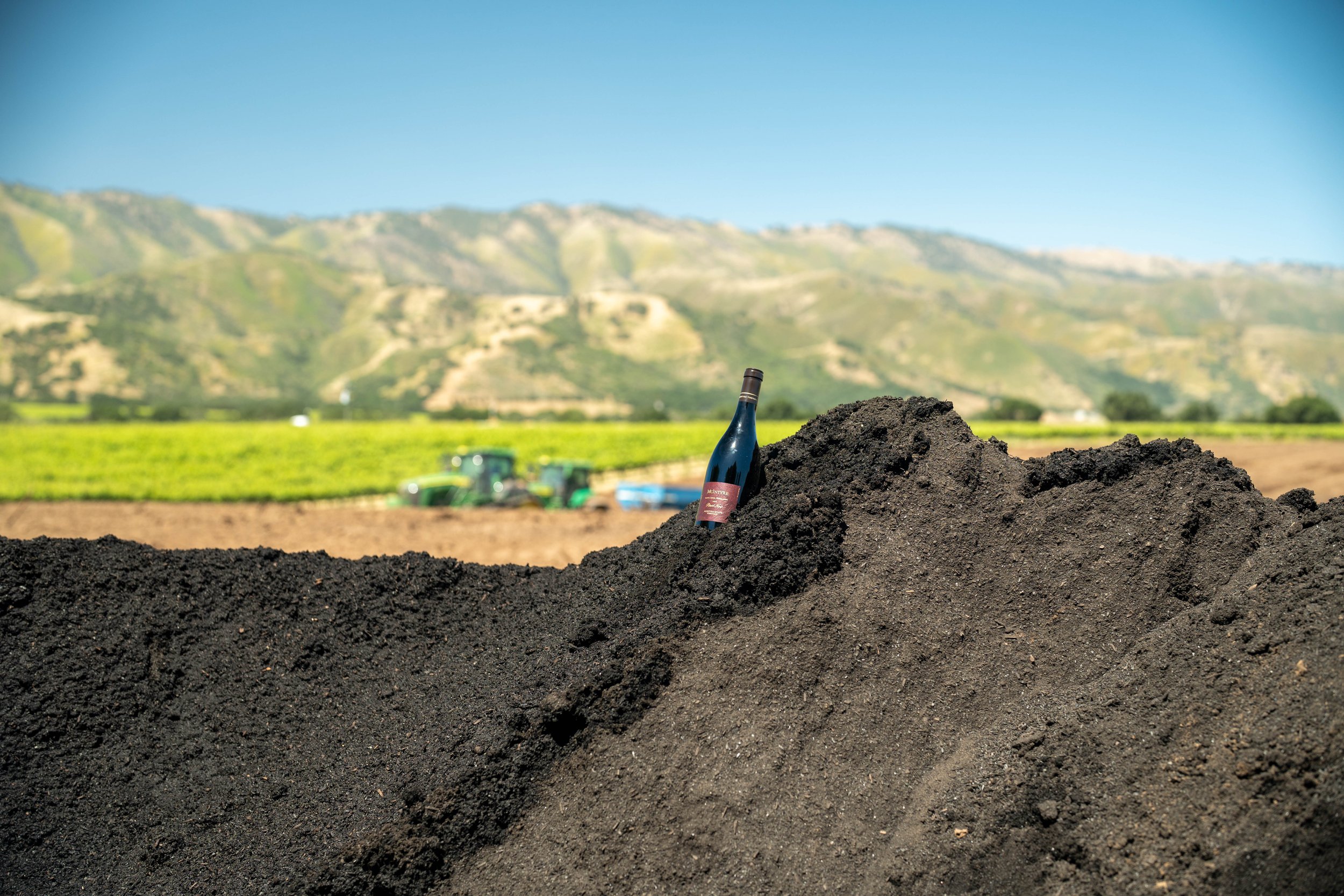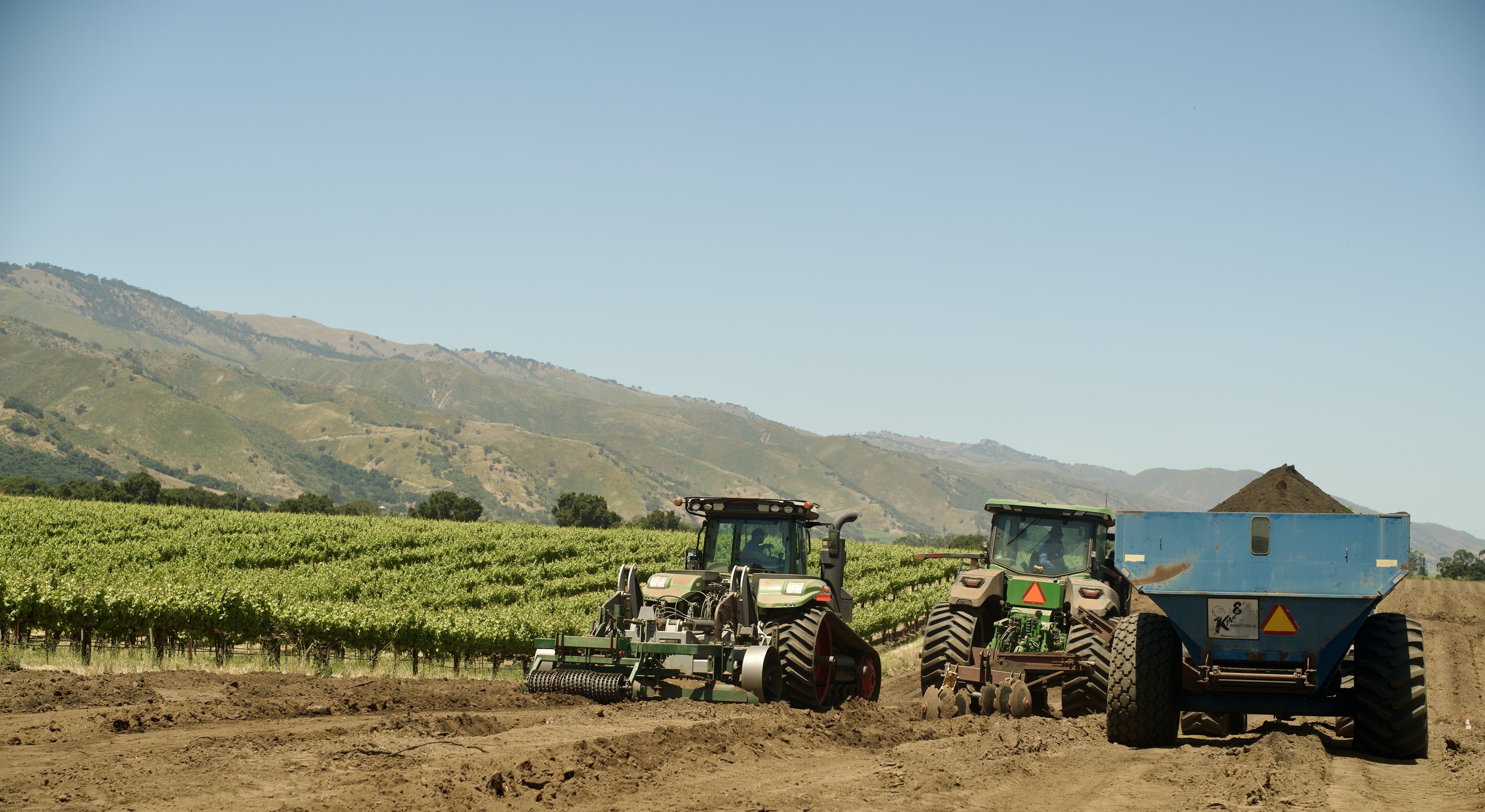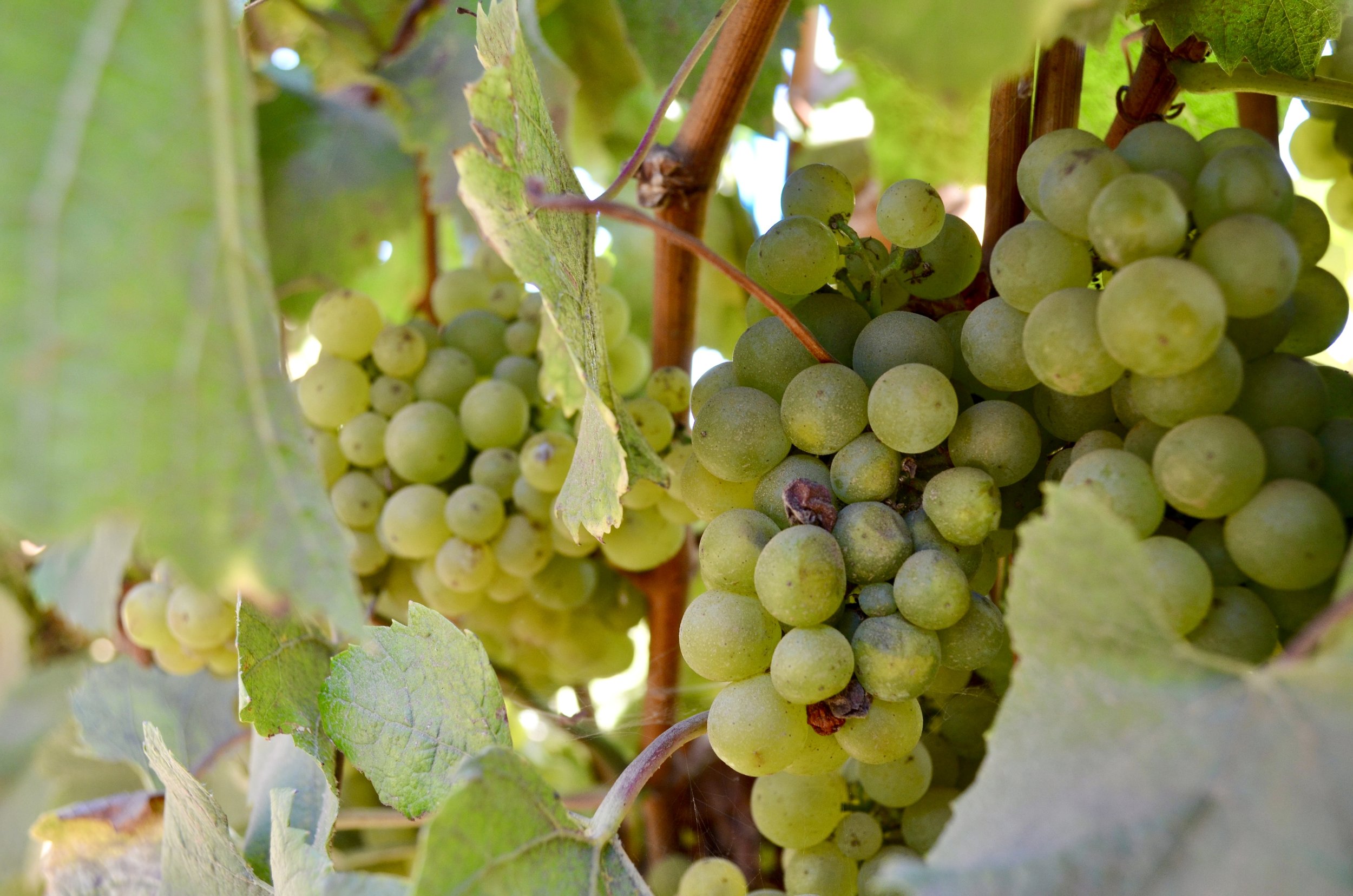
Biochar in Viticulture
Healthy Soils = Healthy Crops
In the intricate dance of agriculture, healthy soils are the bedrock for thriving crops.
Biochar steps into this partnership, acting as a soil ally.
This carbon-rich material transforms the game for soil health, crop yields, and beyond.
-

Boosted Crop Resilience
Biochar enhances crop resilience by improving soil structure and water retention, aiding crops against environmental challenges. Promoting beneficial microbial activity, it fosters a balanced soil ecosystem. With erosion mitigation and nutrient retention, biochar fortifies crops, offering farmers increased resilience and a sustainable agricultural system.
-

Enhanced Water Retention
Biochar acts as a moisture magnet in the soil, improving water retention. This means plants have access to water for a more extended period, reducing the need for frequent irrigation and ensuring consistent hydration.
-

Increased Crop Yields
In agriculture, biochar is a game-changer, enhancing crop yields through optimal, nutrient-rich soil. With superior water and nutrient retention, biochar ensures a steady supply, fostering crop health and resilience. This results in increased yields and improved crop quality, solidifying biochar's role in maximizing agricultural productivity.
-

Elevated Microbial Activity
Biochar creates a welcoming environment for beneficial microbes. These microorganisms play a crucial role in breaking down organic matter, improving soil structure, and fostering a balanced ecosystem beneath the surface.
-

Improved Soil Structure
The incorporation of biochar enhances soil structure, promoting better aeration and root penetration. This contributes to overall soil friability and reduces compaction, creating an environment where plants can thrive.
-

Sustainable Erosion Control
By mitigating soil erosion, biochar acts as a natural ally in preserving valuable topsoil. Its stabilizing effect helps prevent nutrient runoff and maintains the integrity of the soil, especially on slopes or in areas prone to erosion.
-
Carbon Sequestration
Biochar takes the lead in carbon sequestration, capturing and storing carbon in the soil to reduce atmospheric CO2 levels. With its stable carbon structure, it offers a long-term, sustainable solution to combat climate challenges. As an eco-friendly ally, biochar enhances soil health, playing a crucial role in building a resilient, carbon-conscious future.
-
No impact on Grape Quality
Choosing biochar in viticulture is a win-win – it offers improved soil health, water retention, and sustainability without affecting the exceptional quality of grapes. It's a fantastic way to cultivate healthier vines while preserving the unique flavor and character of each grape.

















